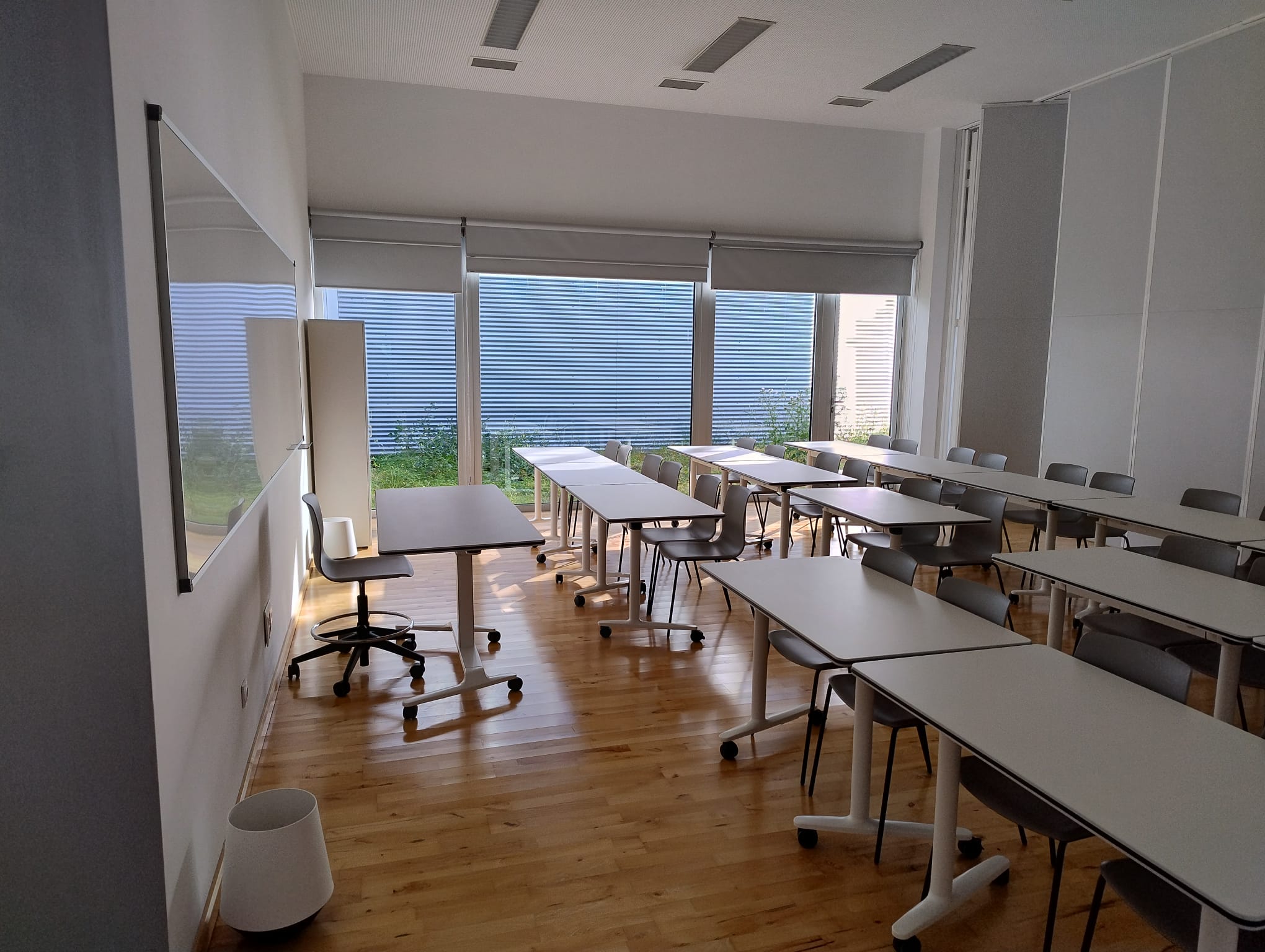
Centro Balear de Biodiversidad
Courses and Seminars
© Antoni Costa
Training
Participate in our free courses and seminars
The CBB organizes specialized courses and seminars on biodiversity, offering updated and practical training for researchers, students, managers, and professionals, promoting learning and knowledge transfer with top-level speakers.
-
April 4th, 2025
Understanding DiSSCo and Specify7: Tools for Biodiversity Data Management
A seminar on digitization infrastructure and collections management systems.
Join us for a special seminar focused on DiSSCo (Distributed System of Scientific Collections) and the Specify collections consortium, featuring insights into Specify 7’s architecture and tools. Delivered by Silvia Lusa from the Museo Nacional de Ciencias Naturales and Iñigo Granzow de la Cerda from the Real Jardín Botánico, this session will explore the evolving landscape of biodiversity informatics.
Designed for researchers, collection managers, and data specialists, providing valuable insights into the platforms driving digital collections and data sharing across institutions. It will cover key aspects of DiSSCo’s mission, the role of Specify in collections management, and practical features of the Specify 7 software.
Speakers
Silvia Lusa (Real Jardín Botánico)
Iñigo Granzow de la Cerda (Museo Nacional de Ciencias Naturales)
when and where
04/04/2025
11:00h
Seminar Room, Complex I+D+I, Parc Bit
NO REGISTRATION NEEDED
-
27 March 2025
Seminar: High-capacity genomics using microfluidics
This seminar will explore the use of microfluidics in high-capacity genomics, highlighting its technological potential and applications in microbiology and biodiversity studies. We will also look at how high-capacity and high-sensitivity equipment such as the Biomark X9 can be used to facilitate environmental DNA (eDNA) and metagenomics analyses.
9h: Biomark X9: The power of microfluidics.
9:45h: Examples and applications.
10:15h: Q&A
10:45h: Coffee Break
11:45h: Practical example: “Uncovering Complexity: High-Throughput Microfluidic qPCR for Simultaneous Detection and Quantification of Oral Microbiota.” by Morgane Ortis, Université Cote d’Azur
12:30h: Individual meetings with potential users who wish to meet.speaker
Ruth Montalbo Calafell, PhD (BFAS, Izasa Scientific by Palex)
María Peñuelas Hortelano, PhD (PM, Izasa Scientific by Palex)
when and where
27 March 2025
09:00h
Sala de Grados, Edificio de Posgrados – UIB
Download flyer
No registration -
February 3, 2025
Seminar: Diversity and evolution of branching worms and their host sponges
The annelid family Syllidae represents a fascinating lineage of marine worms. It is the largest and most diverse family among the annelids, with more than 1,000 species that inhabit virtually all habitats and deep seas. These marine worms are known for their various modes of reproduction (sexual and asexual) and their incredible capacity for regeneration. Among them, certain species stand out for their unique branched body structures, such as the symbiotic “arboreal silica worms” (Ramisyllis spp.) that live within sponges. These worms possess a single head but develop a body that repeatedly branches into numerous posterior ends. By employing an integrative approach that combines morphology, molecular biology, and ecology, our research seeks to uncover how these branching worms have evolved and formed specialized relationships with their sponge hosts.
speaker
Dra. Maite Aguado (Biodiversity Museum of the Georg-August-University Göttingen)
When and where
03/02/2025
12:00h
Edifici complex M2 (Carrer Blaise Pascal, 7, Parc Bit)
-
February 3, 2025
Seminar: Short read genomics
While long-read sequencing made it possible to assemble genomes with resolved chromosomes, the bottleneck to achieving the goal of sequencing all life on Earth was the availability of high-quality samples. Scientific collections, rich with specimens from around the globe, offer an invaluable resource for short-read sequencing . I will present methods of using genome sequencing data for draft genomic assemblages and highlight their potential for phylogenomics, genomics, and biodiversity research, using nereid phylogeny as an example.
speaker
Dr. Christoph Bleidorn (Georg-August-University in Göttingen)
where and when
03/02/2025
12:00h
Edifici complex M2 (Carrer Blaise Pascal, 7, Parc Bit)
-
January 21-24, 2025
Course in Measuring Biodiversity: Tools and Limitations
Measuring biodiversity is a cornerstone of ecological research, species conservation, and environmental monitoring. Over the years, this field has seen significant advancements, with increasingly precise and sophisticated methods developed to evaluate diversity across various levels, from genetic variation to entire ecosystems. These approaches range from traditional metrics, such as species richness, to cutting-edge tools that incorporate functional and phylogenetic dimensions, offering a more comprehensive and nuanced understanding of biodiversity.
Selecting the appropriate method, however, depends on several factors, including the ecosystem in question, the research objectives, and available resources. In this context, it is crucial to critically assess the limitations, biases, and assumptions underlying each methodology. By doing so, researchers can enhance the accuracy and relevance of their findings, ultimately contributing to a more rigorous and reliable foundation for biodiversity science.
teacher
where and when
21/01/2025 – 24/01/2025
9:30h – 16:30h
Edifici complex M2 (Carrer Blaise Pascal, 7, Parc Bit)
